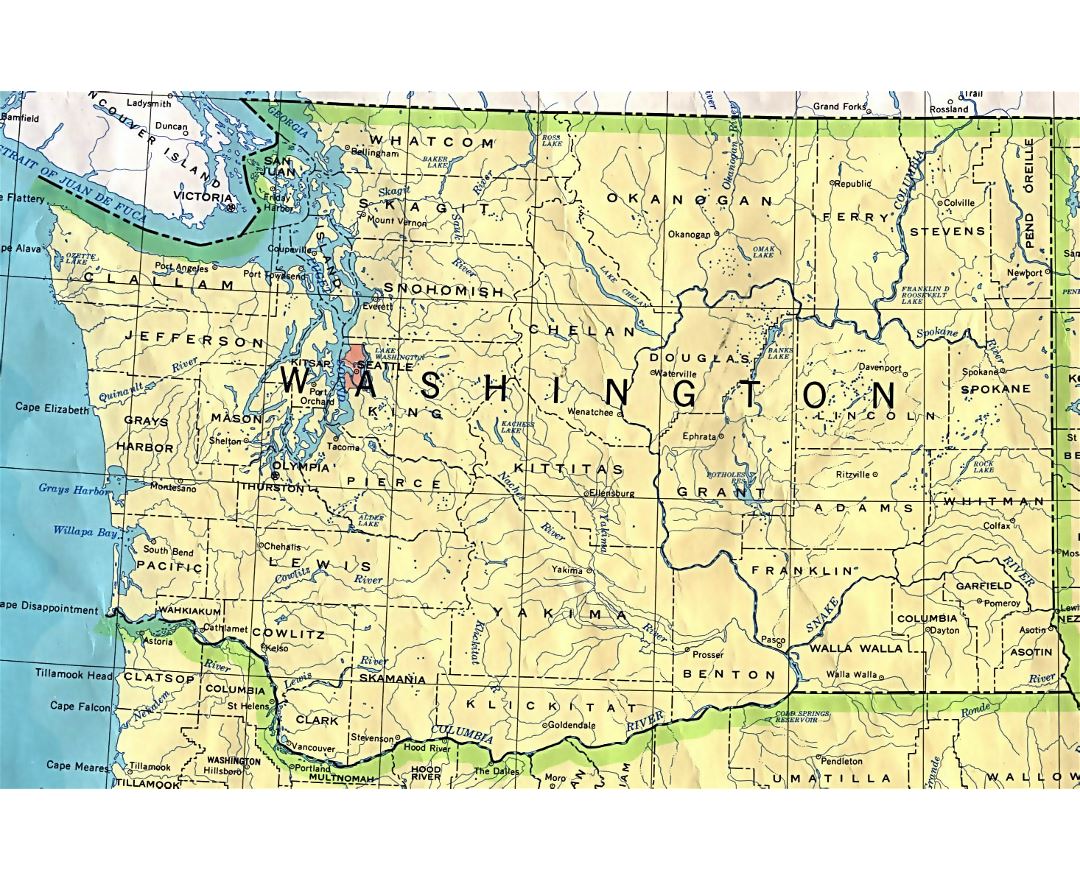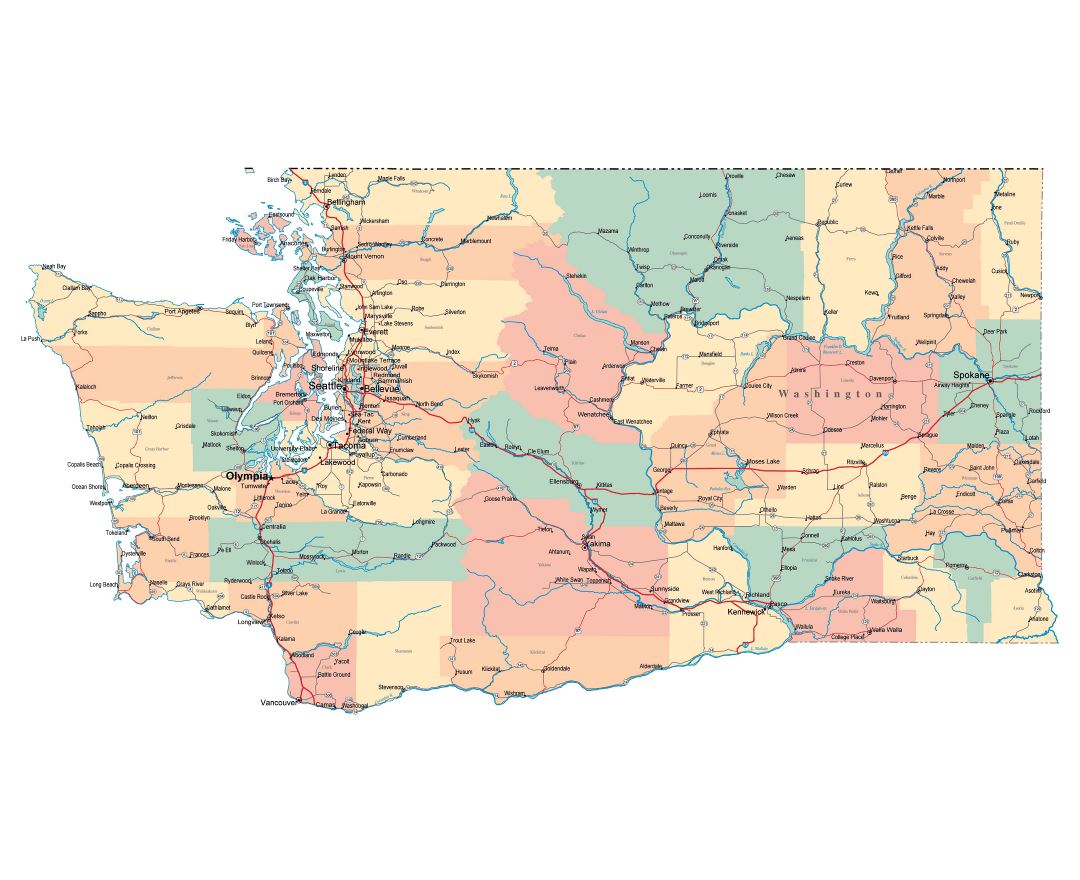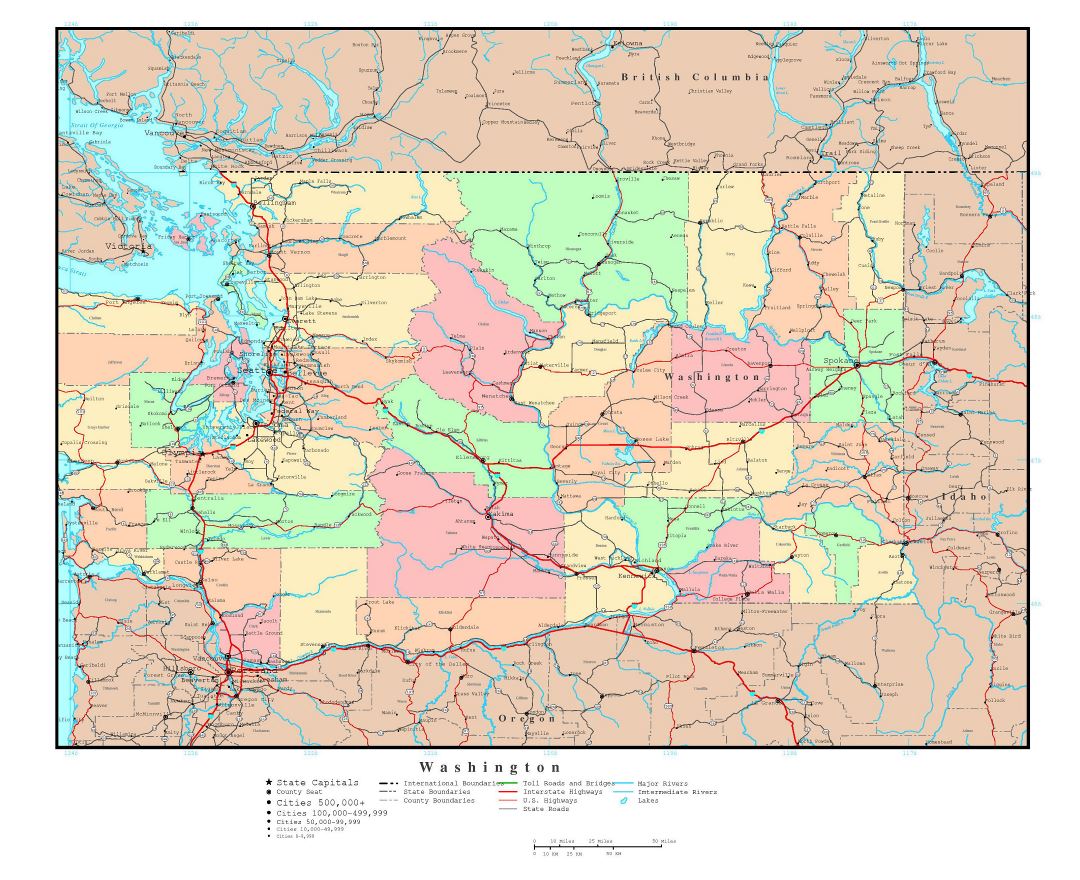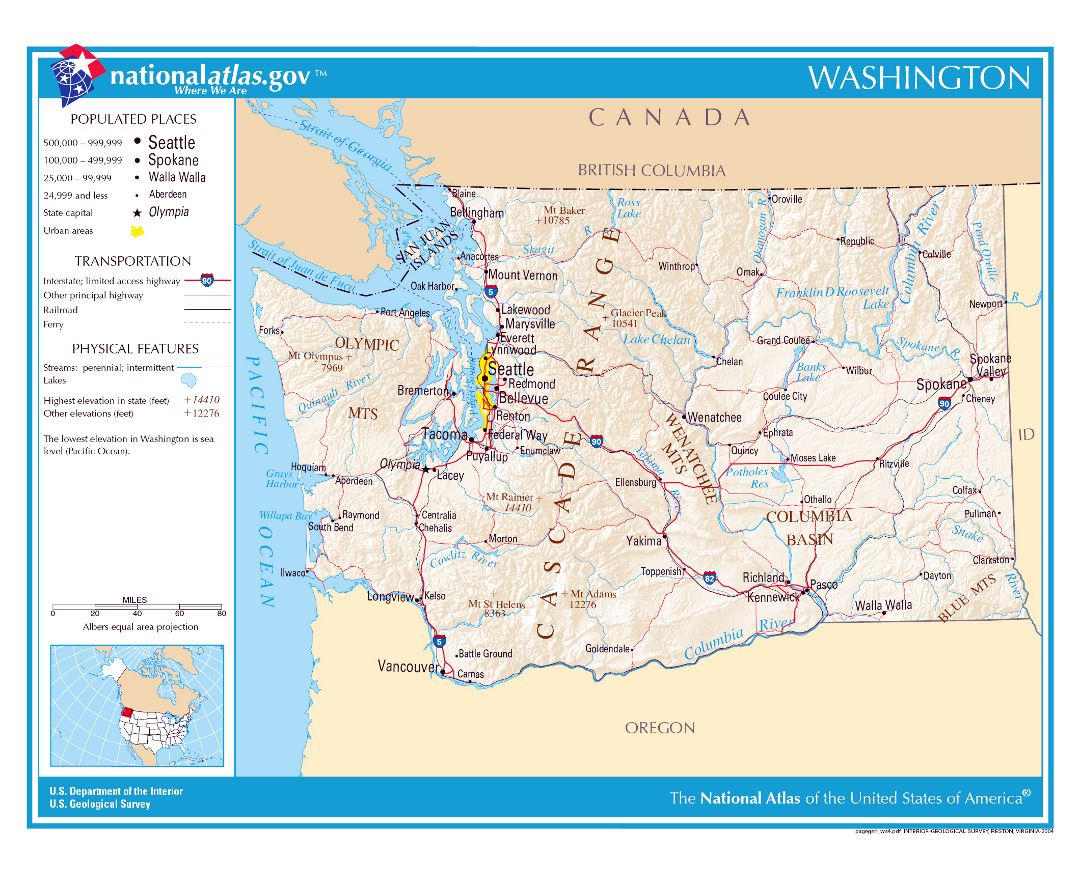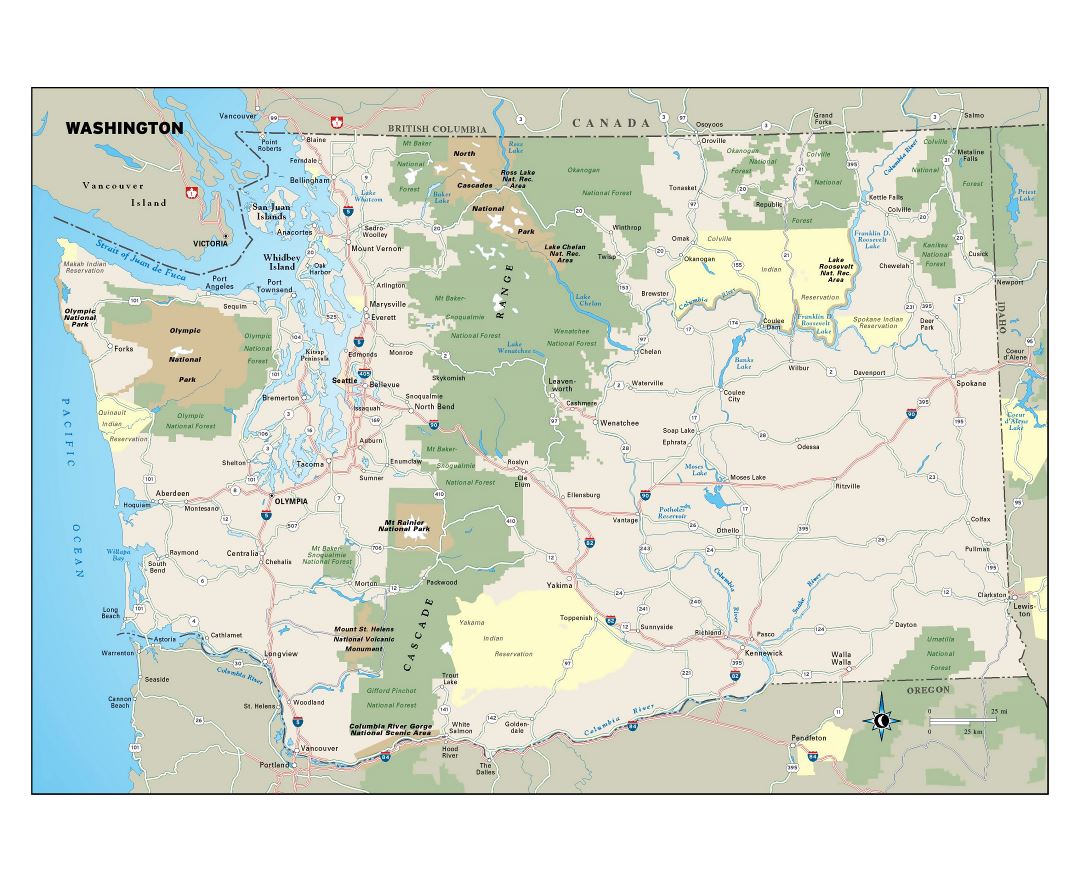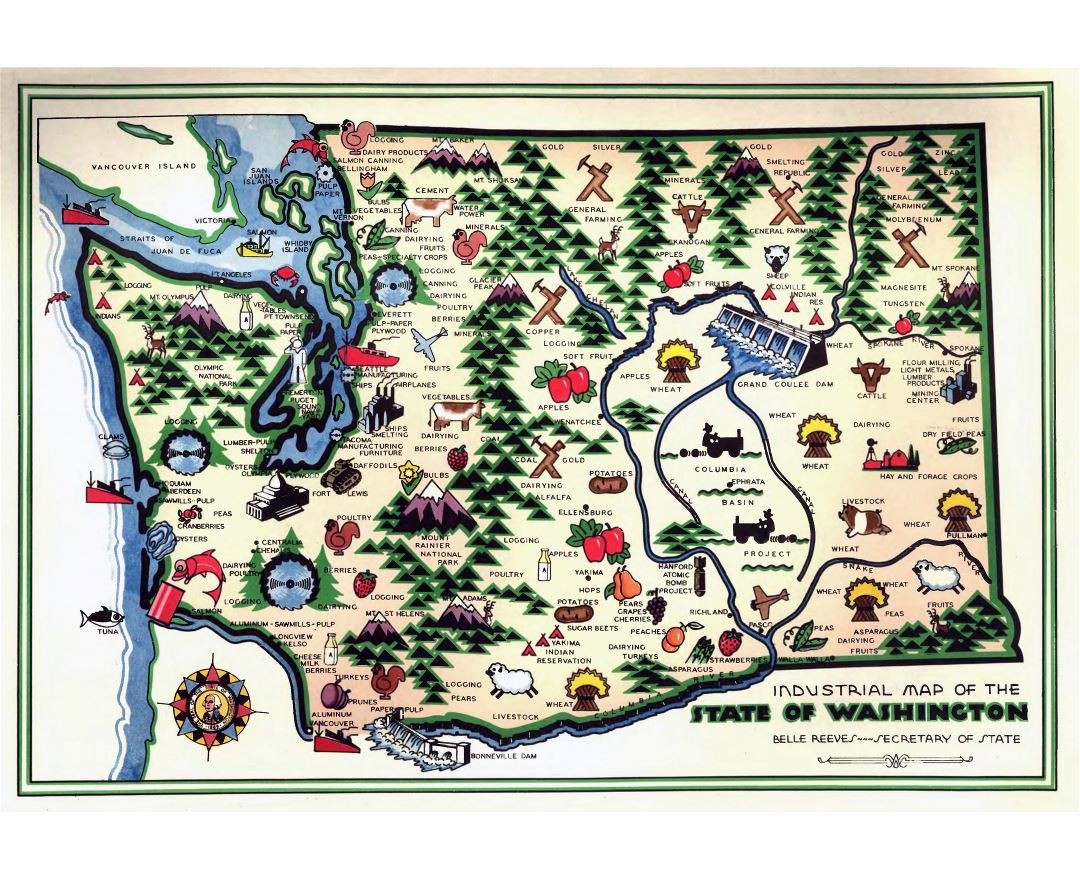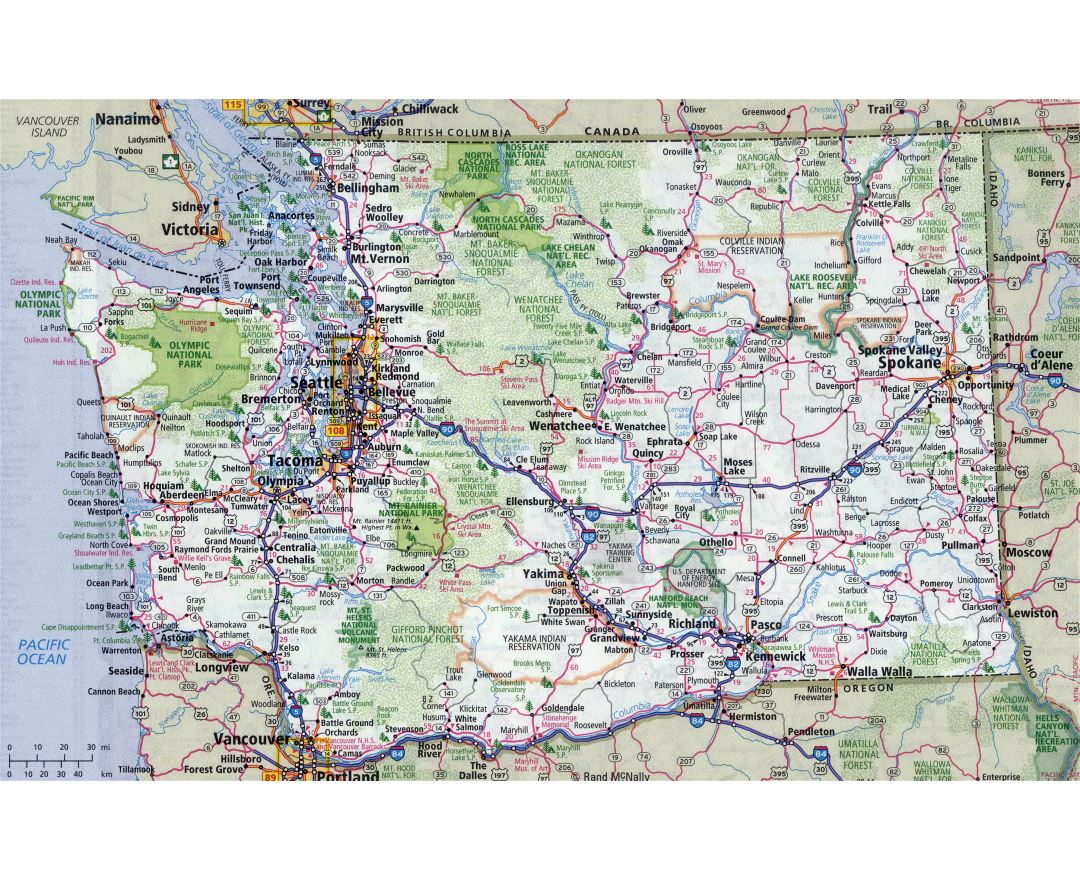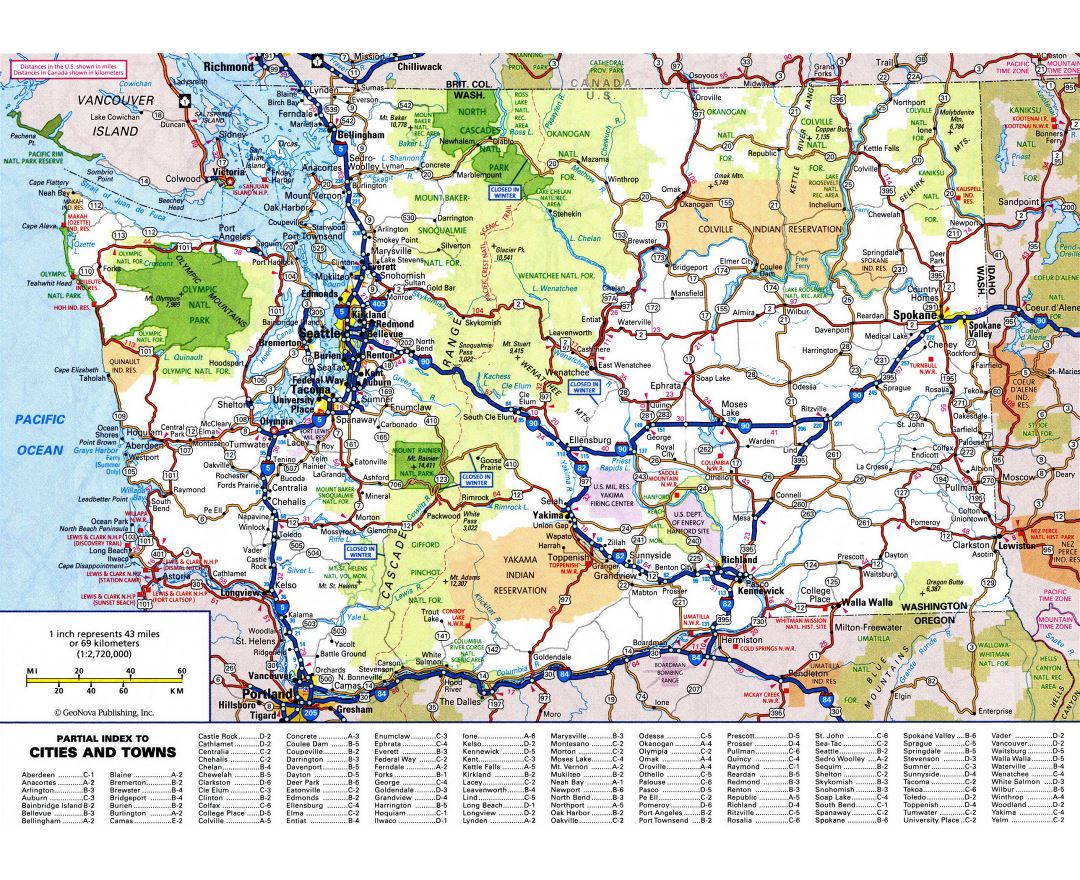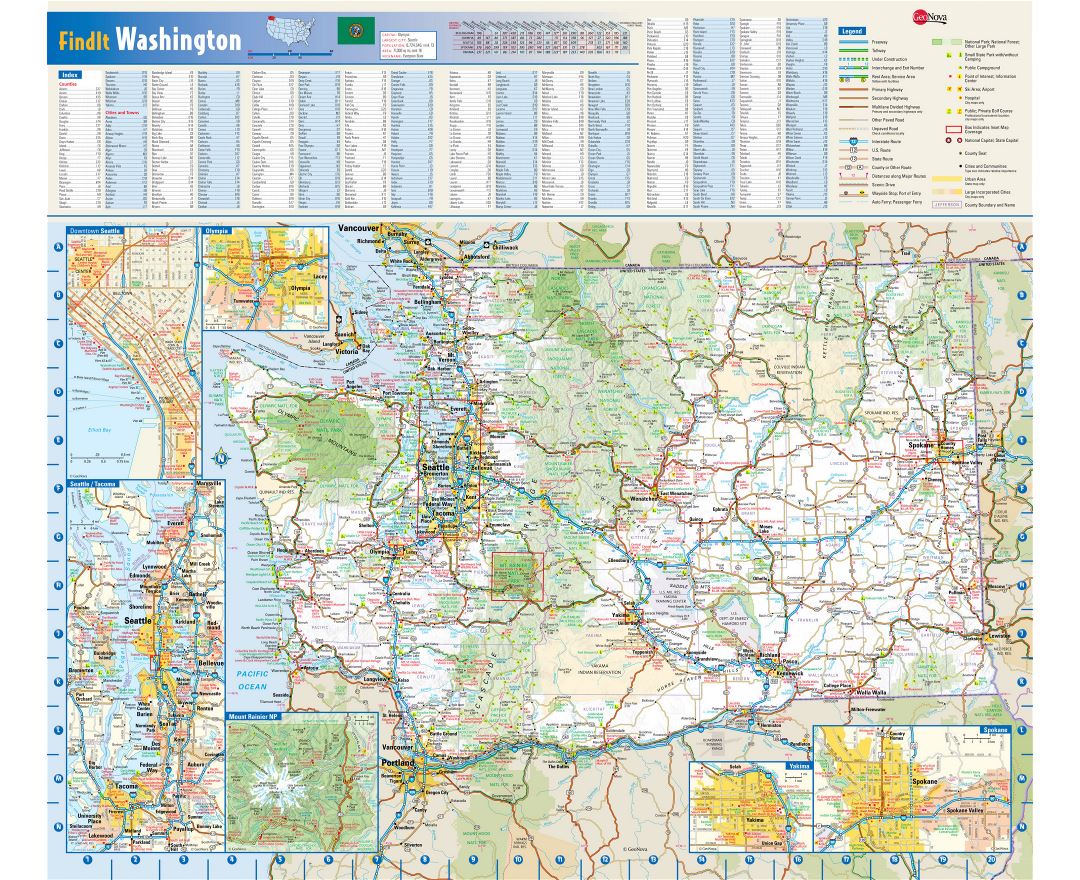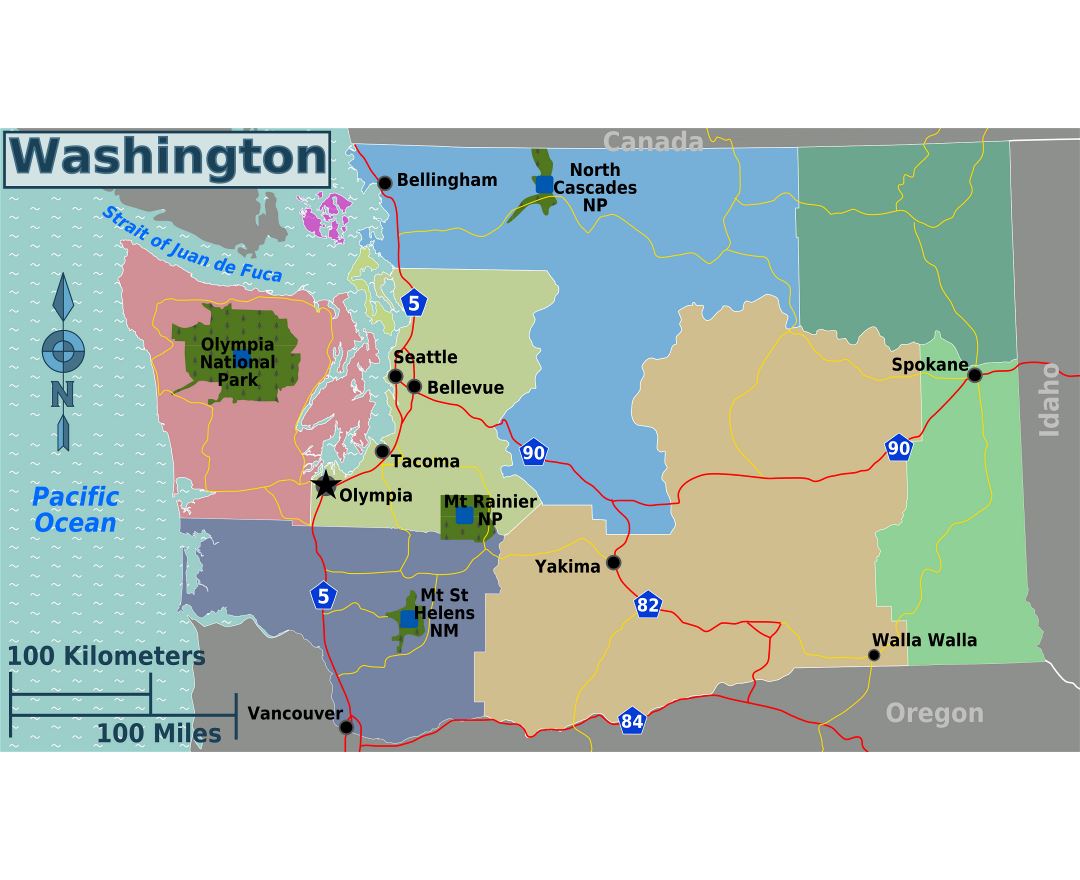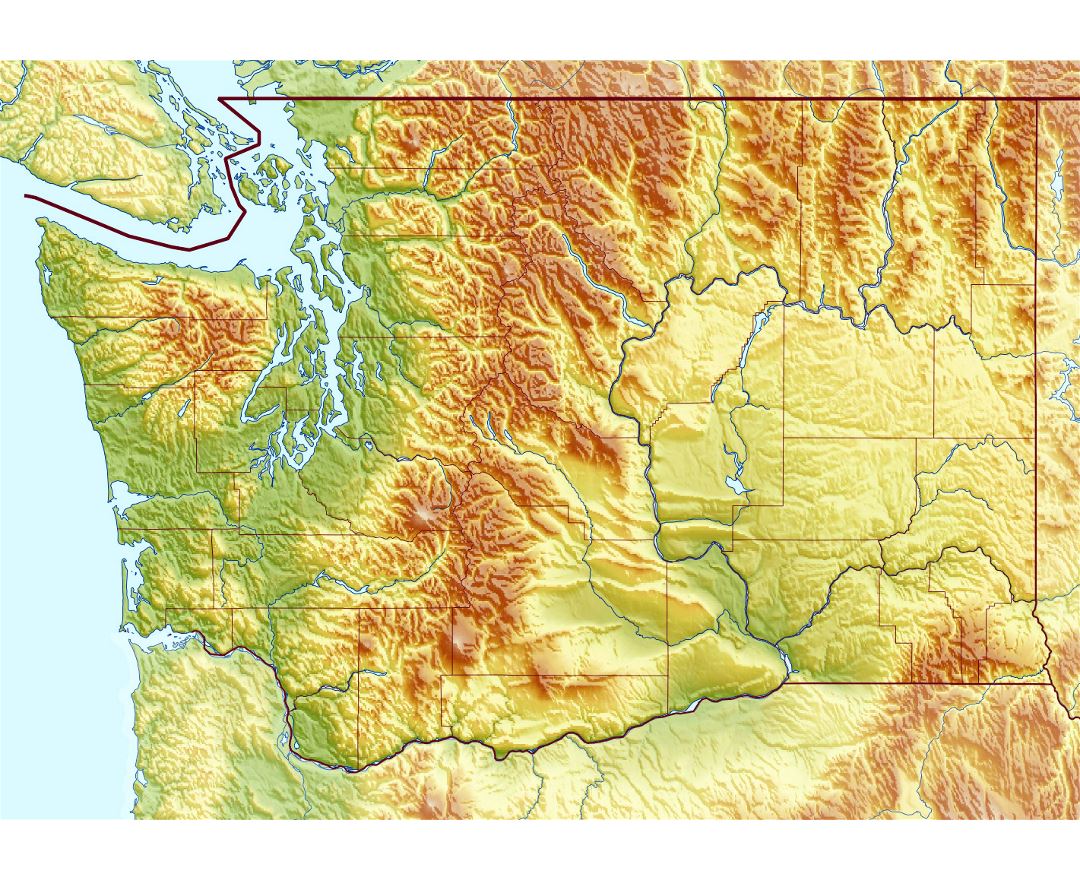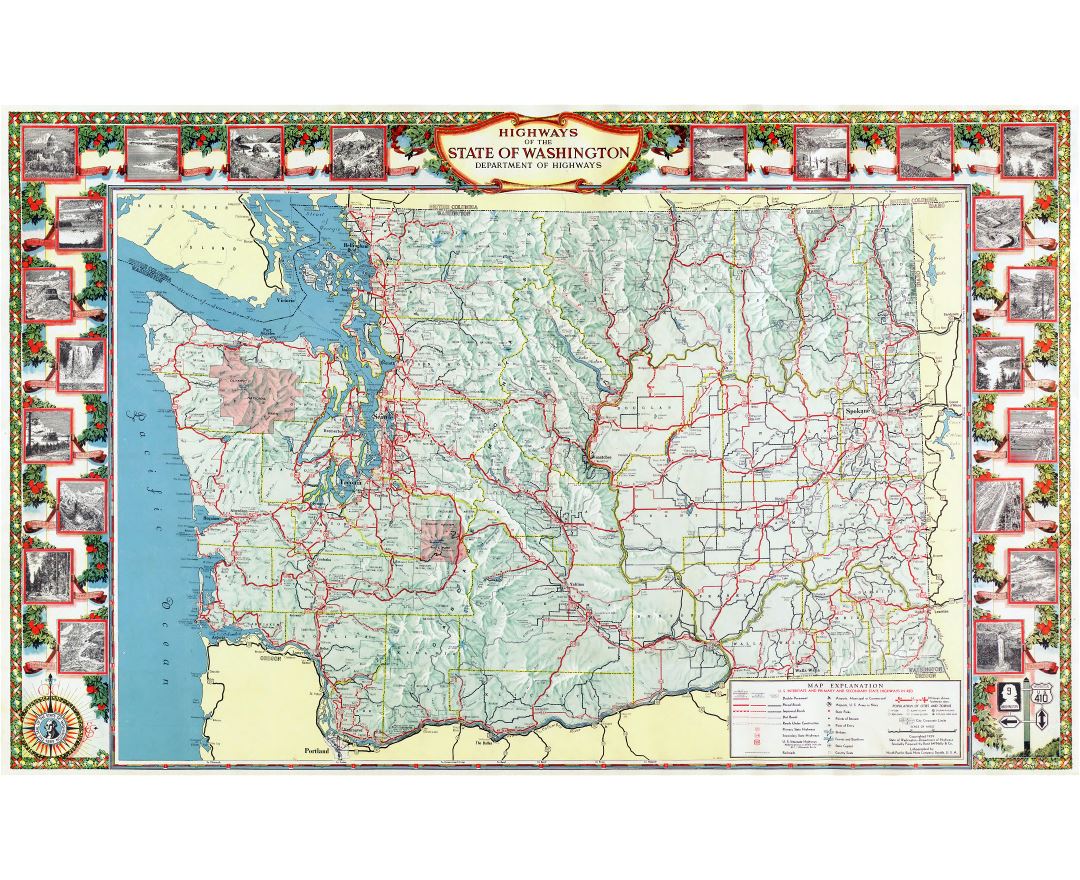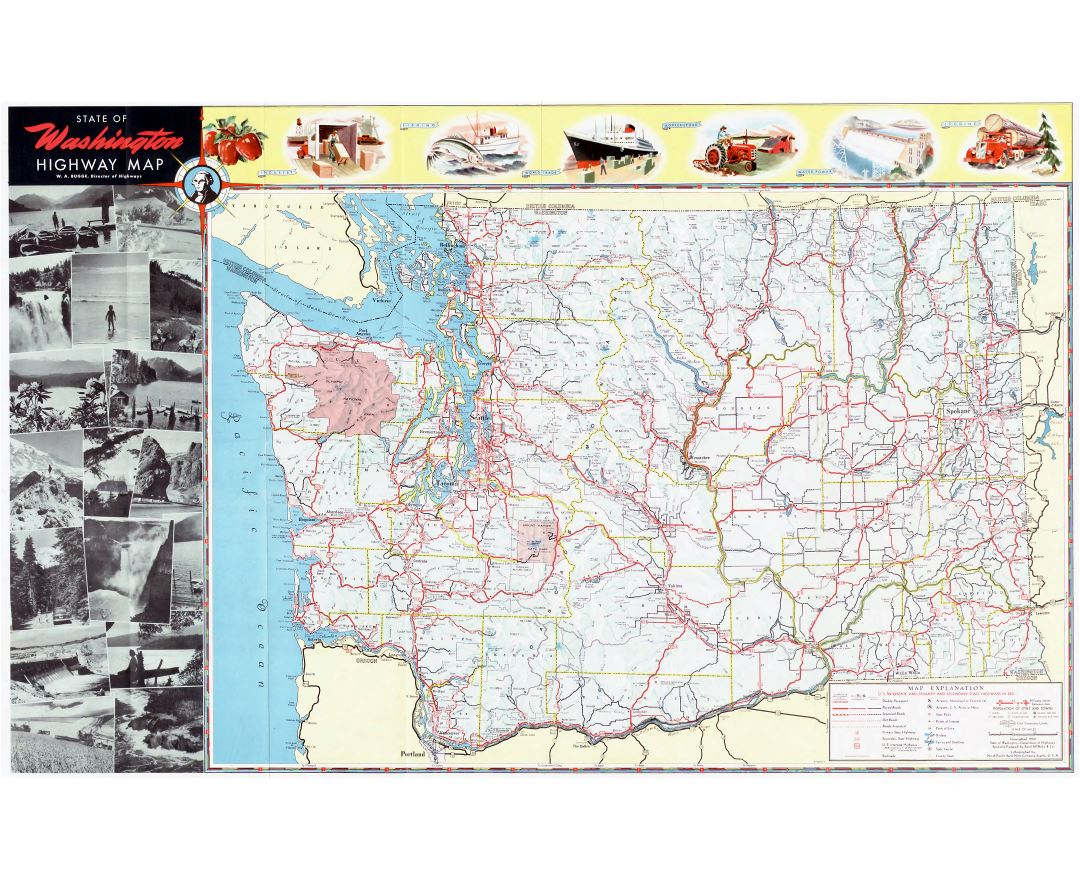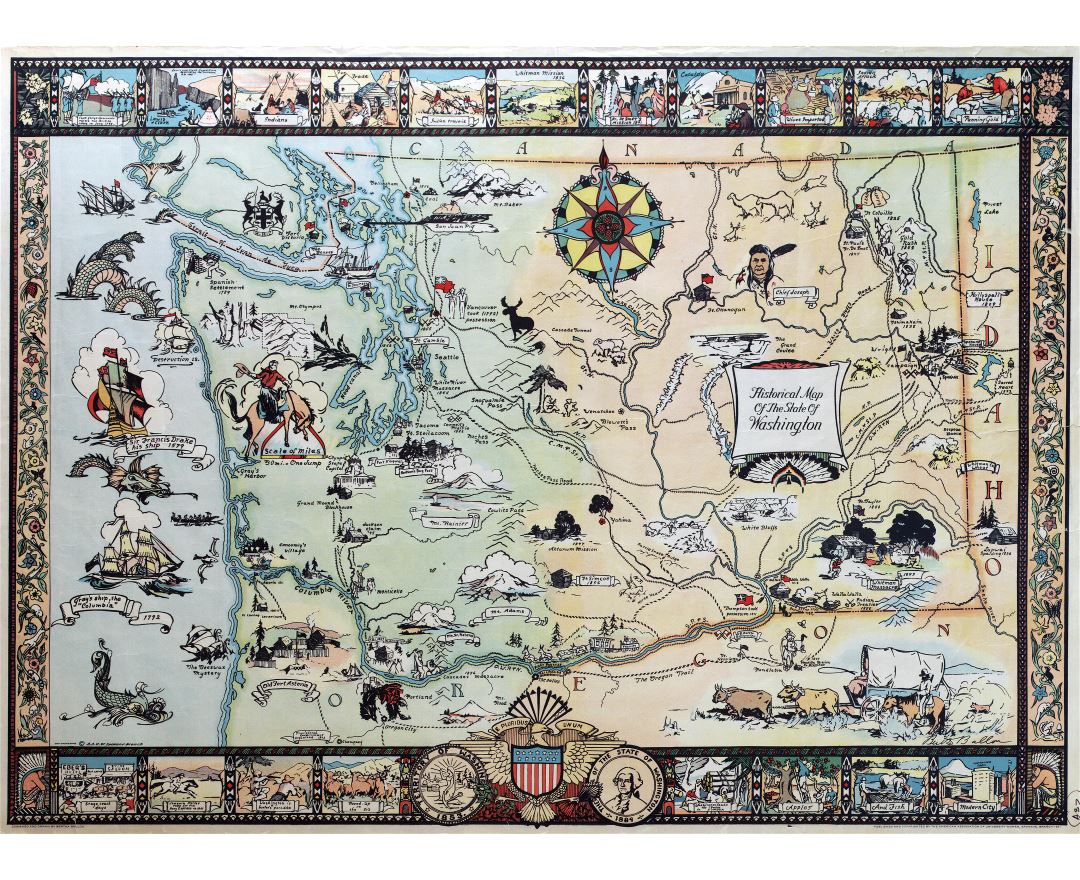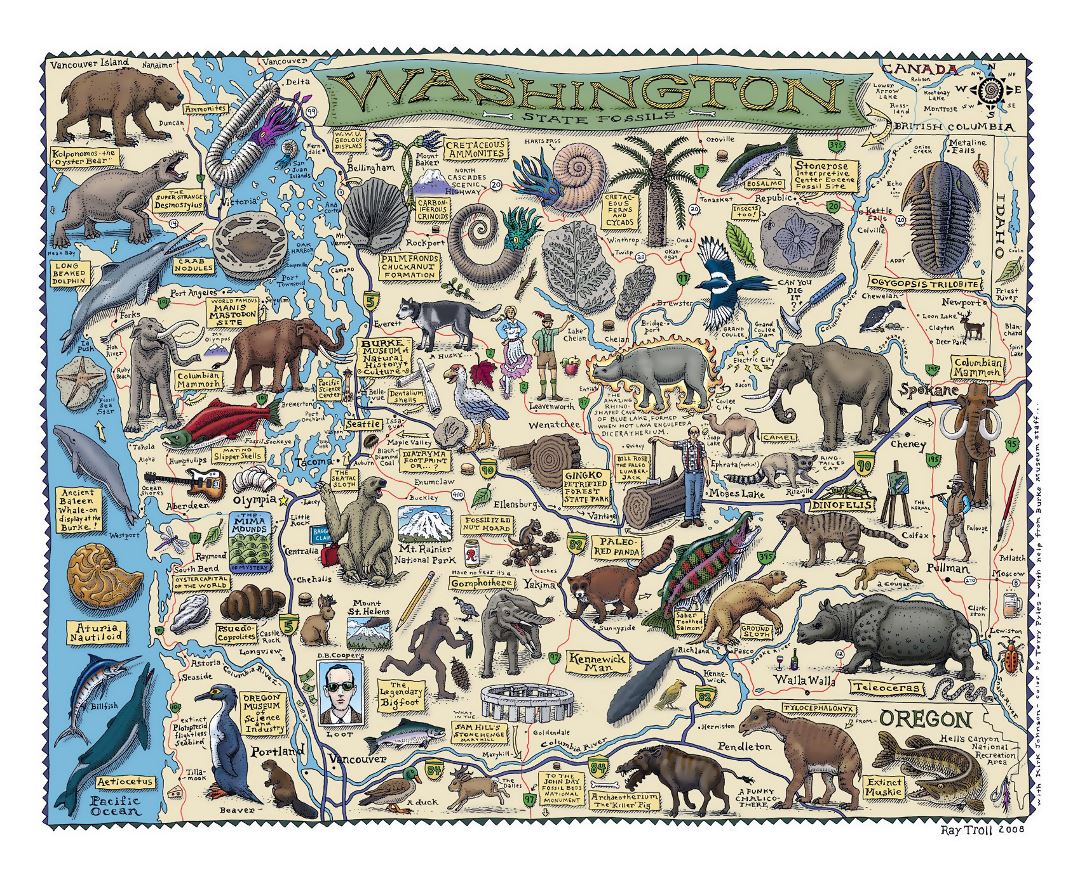Washington state
Washington, officially the State of Washington, is a state in the Pacific Northwest region of the United States. Named after George Washington, the first President of the United States, the state was made out of the western part of the Washington Territory, which had been ceded by Britain in 1846 in accordance with the Oregon Treaty in the settlement of the Oregon boundary dispute. It was admitted to the Union as the 42nd state in 1889. Olympia is the state capital. Washington is sometimes referred to as Washington State to distinguish it from Washington, D.C., the capital of the U.S., which is often shortened to Washington.
Washington is the 18th largest state with an area of 71,362 square miles (184,827 sq km), and the 13th most populous state with over 7 million people. Approximately 60 percent of Washington's residents live in the Seattle metropolitan area, the center of transportation, business, and industry along Puget Sound, an inlet of the Pacific Ocean consisting of numerous islands, deep fjords, and bays carved out by glaciers. The remainder of the state consists of deep temperate rainforests in the west, mountain ranges in the west, central, northeast and far southeast, and a semi-arid basin region in the east, central, and south, given over to intensive agriculture. Washington is the second most populous state on the West Coast and in the Western United States, after California. Mount Rainier, an active stratovolcano, is the state's highest elevation at almost 14,411 feet (4,392 m) and is the most topographically prominent mountain in the contiguous United States.
Washington is a leading lumber producer. Its rugged surface is rich in stands of Douglas fir, hemlock, ponderosa pine, white pine, spruce, larch, and cedar. The state is the biggest producer of apples, hops, pears, red raspberries, spearmint oil, and sweet cherries, and ranks high in the production of apricots, asparagus, dry edible peas, grapes, lentils, peppermint oil, and potatoes. Livestock and livestock products make important contributions to total farm revenue, and the commercial fishing of salmon, halibut, and bottomfish makes a significant contribution to the state's economy.
Manufacturing industries in Washington include aircraft and missiles, shipbuilding and other transportation equipment, lumber, food processing, metals and metal products, chemicals, and machinery. Washington has over 1,000 dams, including the Grand Coulee Dam, built for a variety of purposes including irrigation, power, flood control, and water storage.

